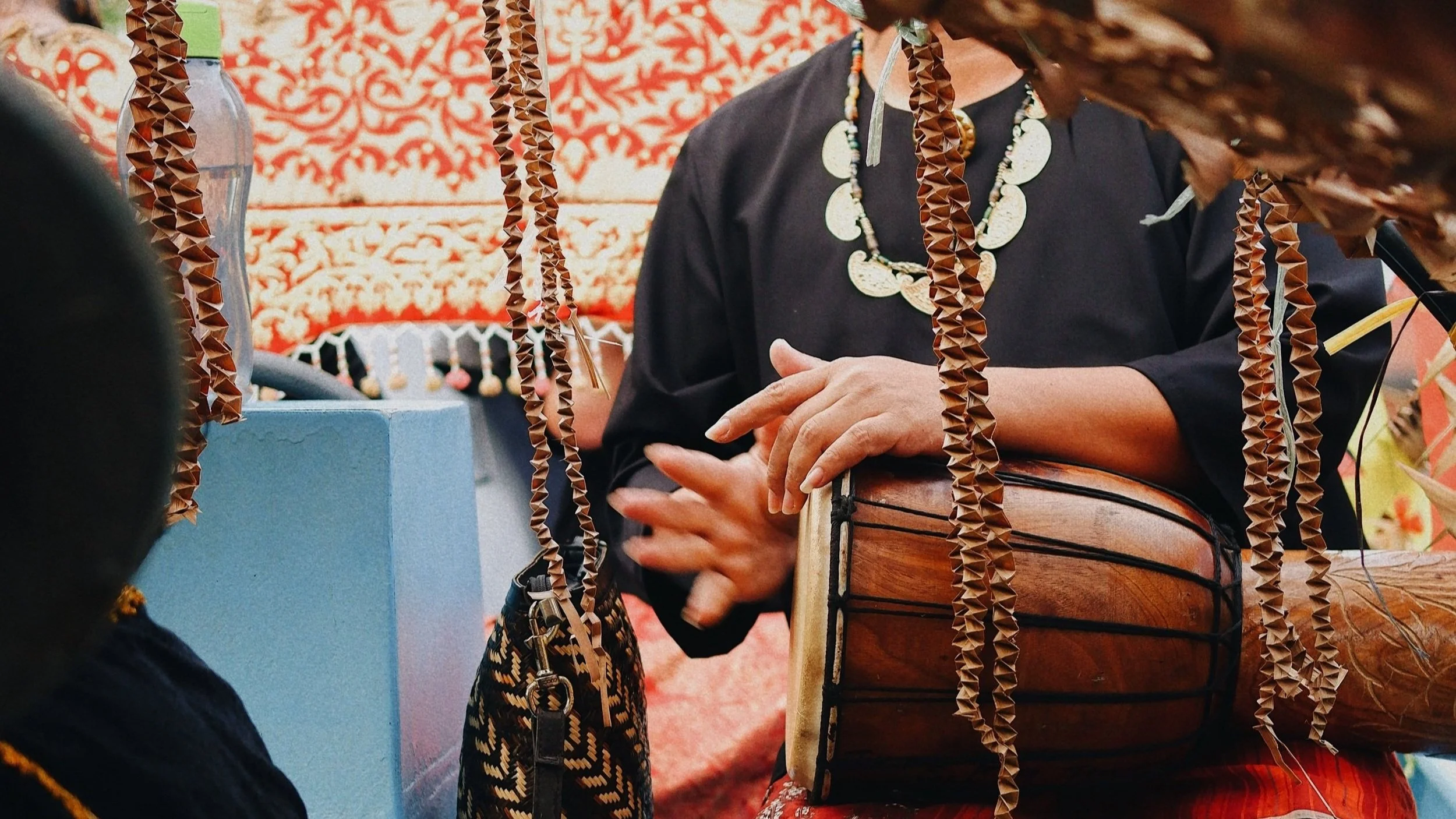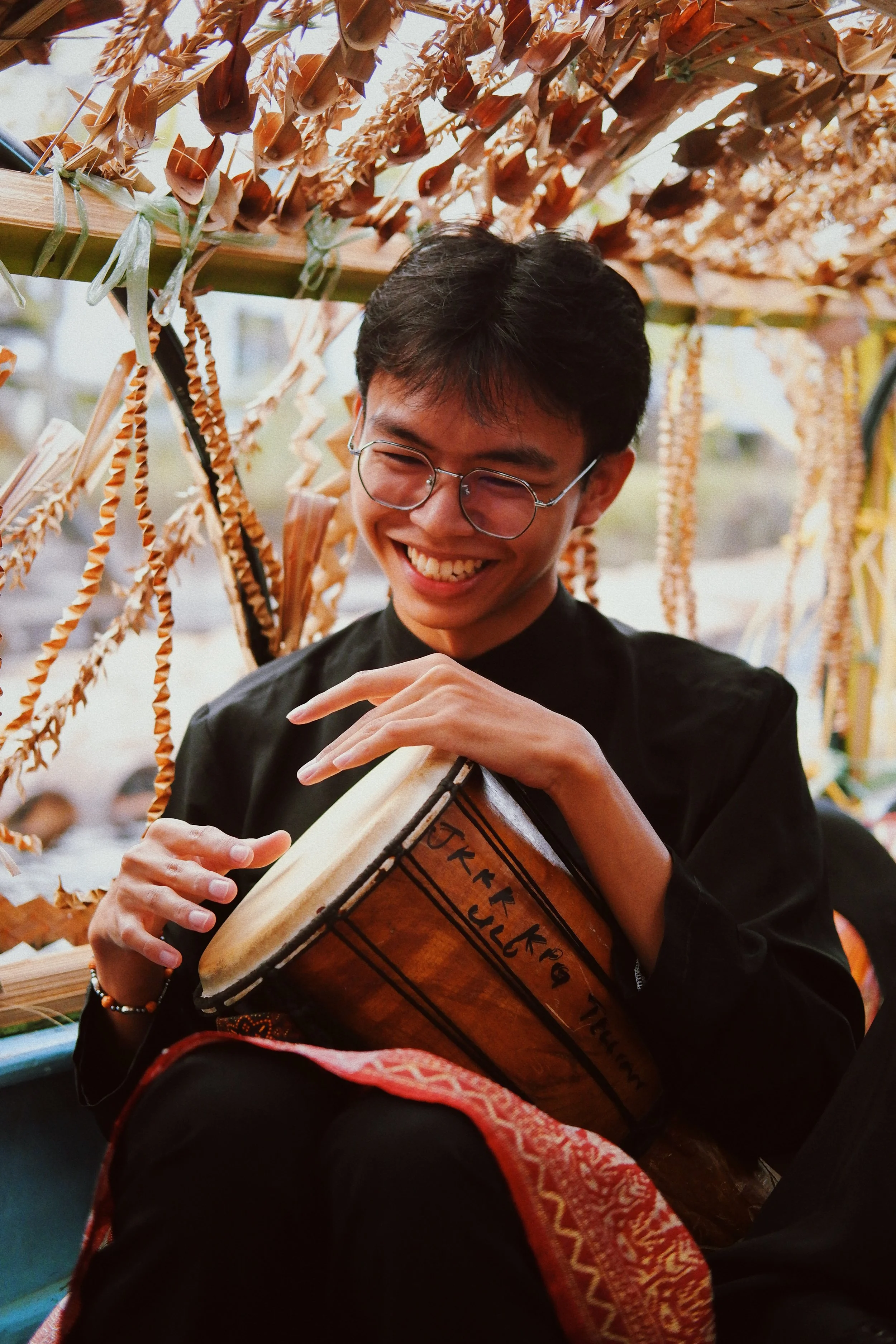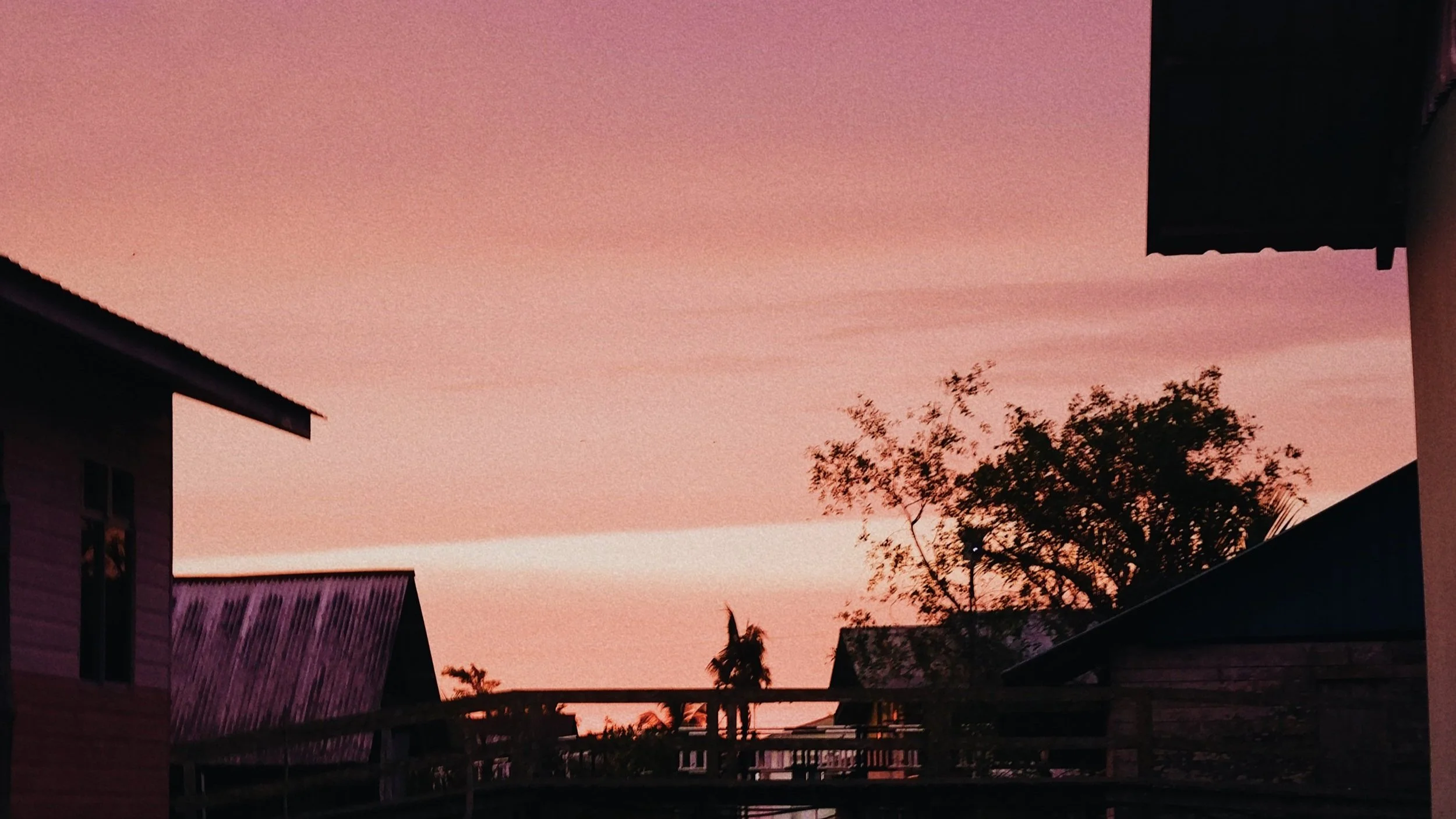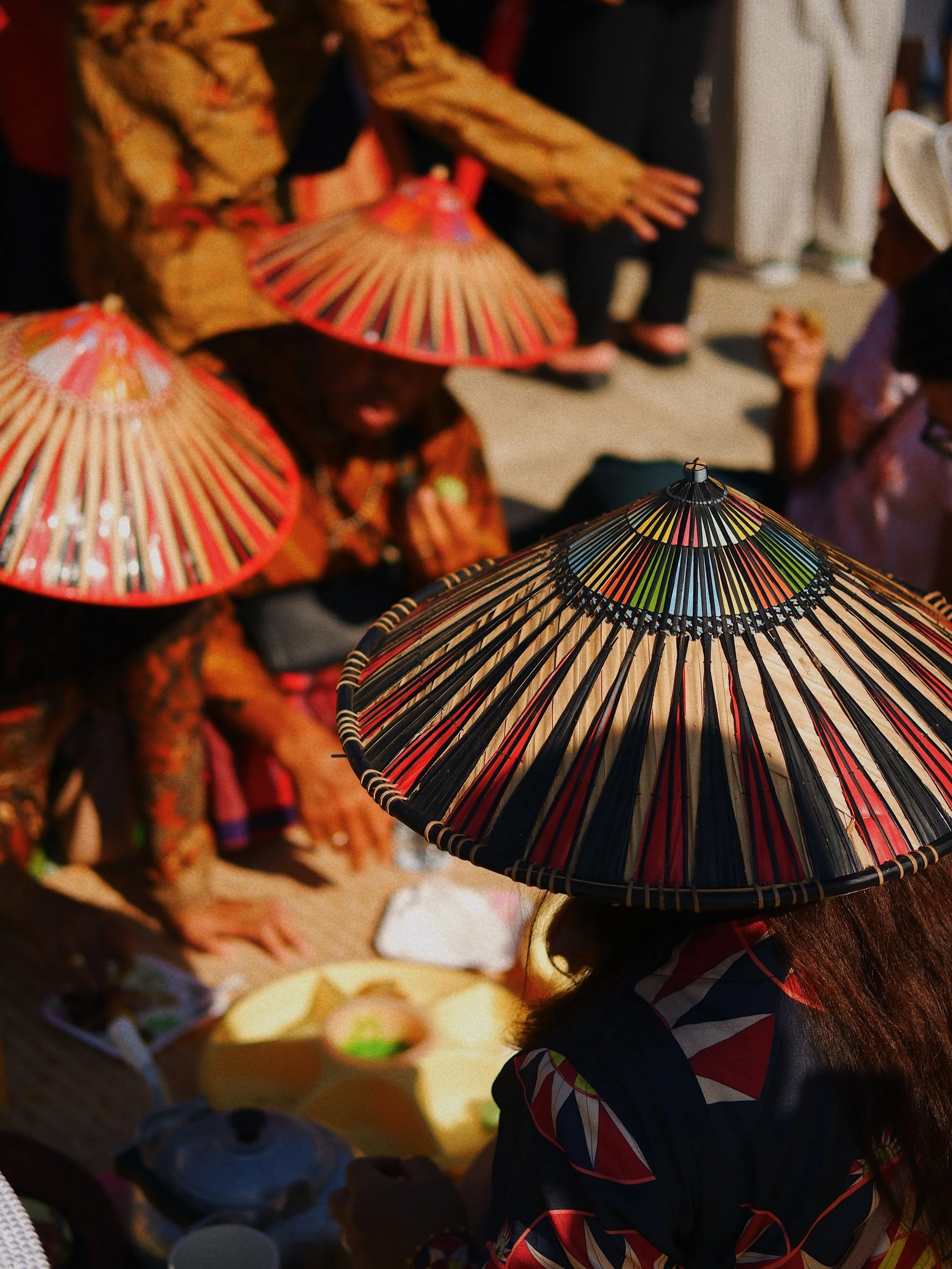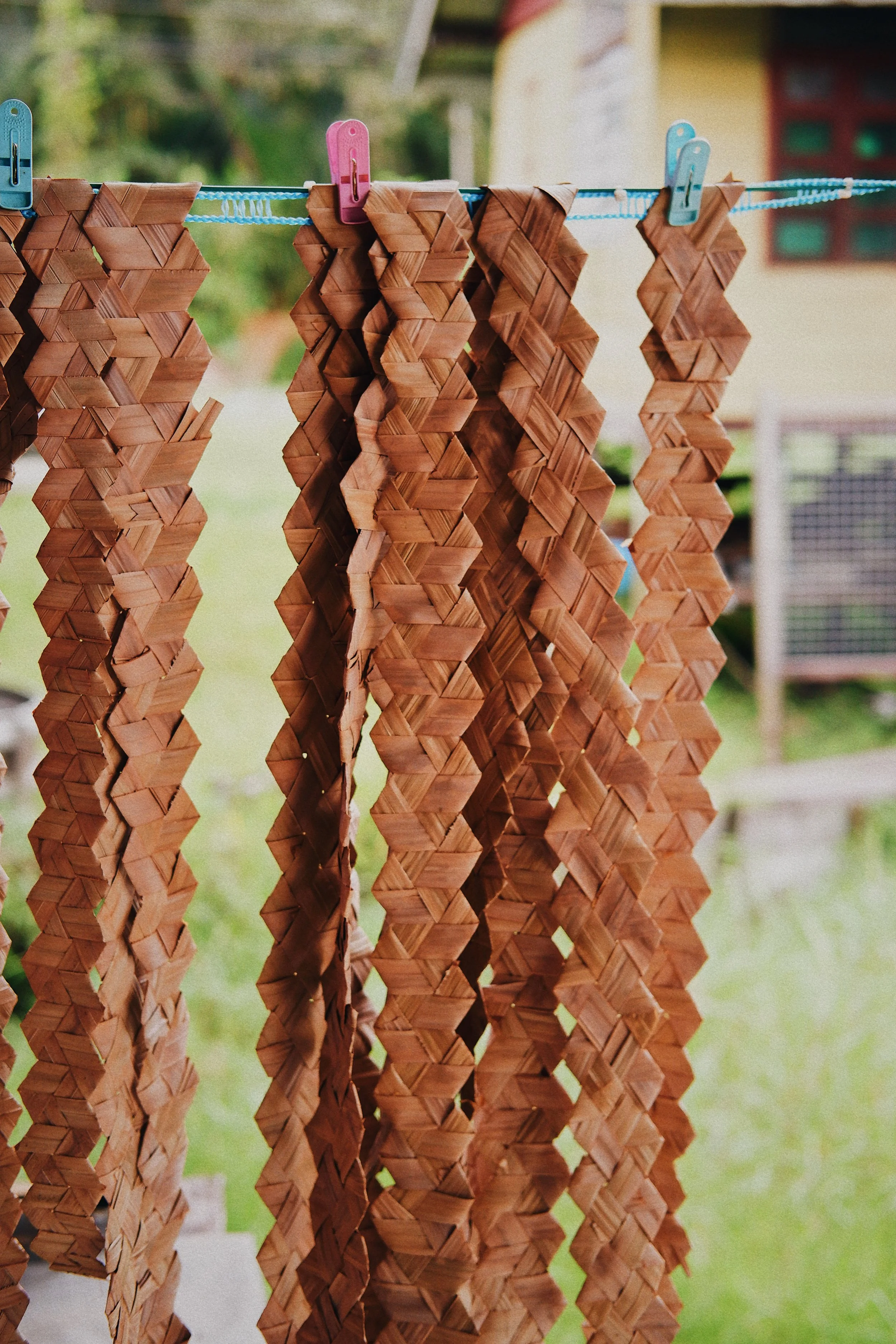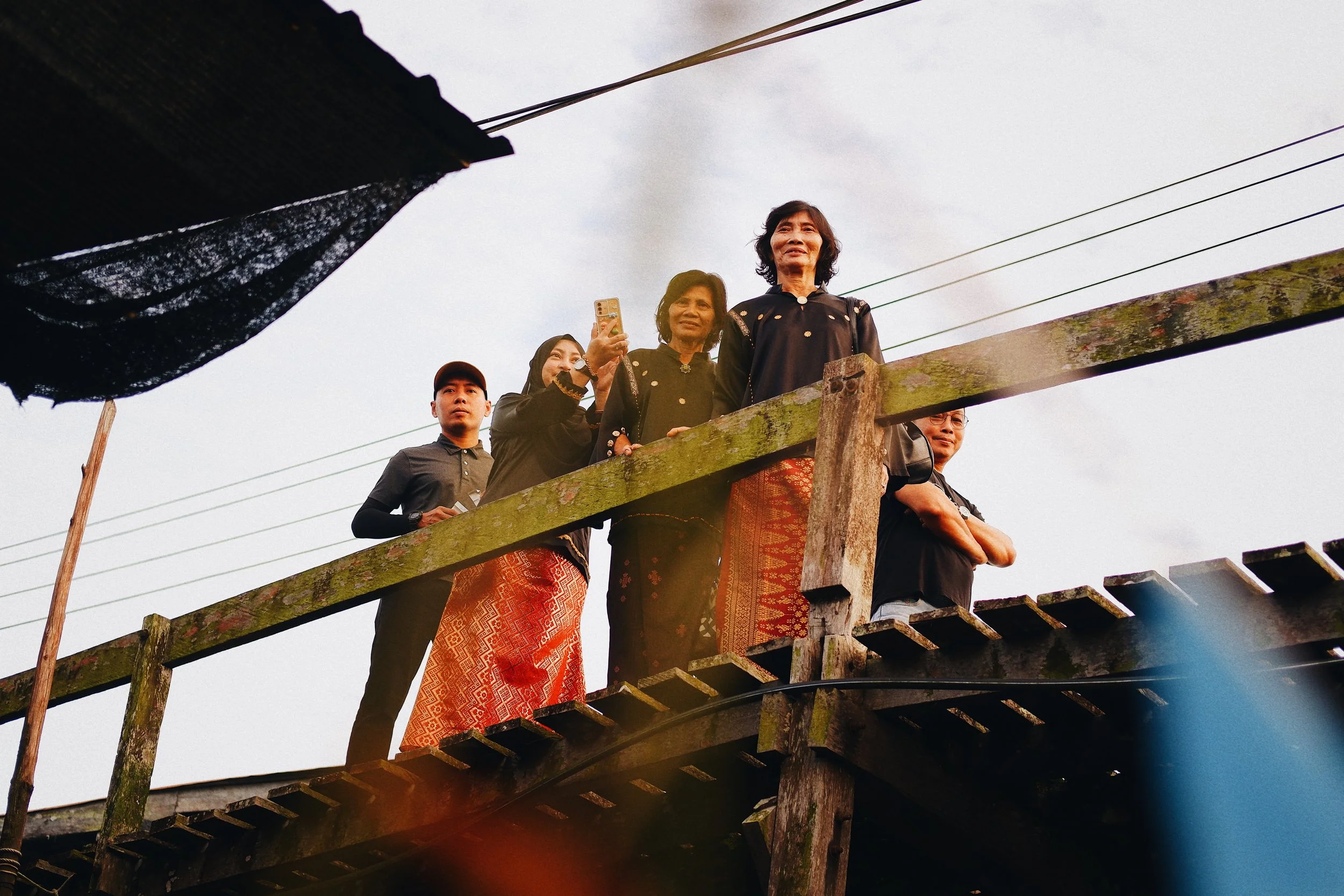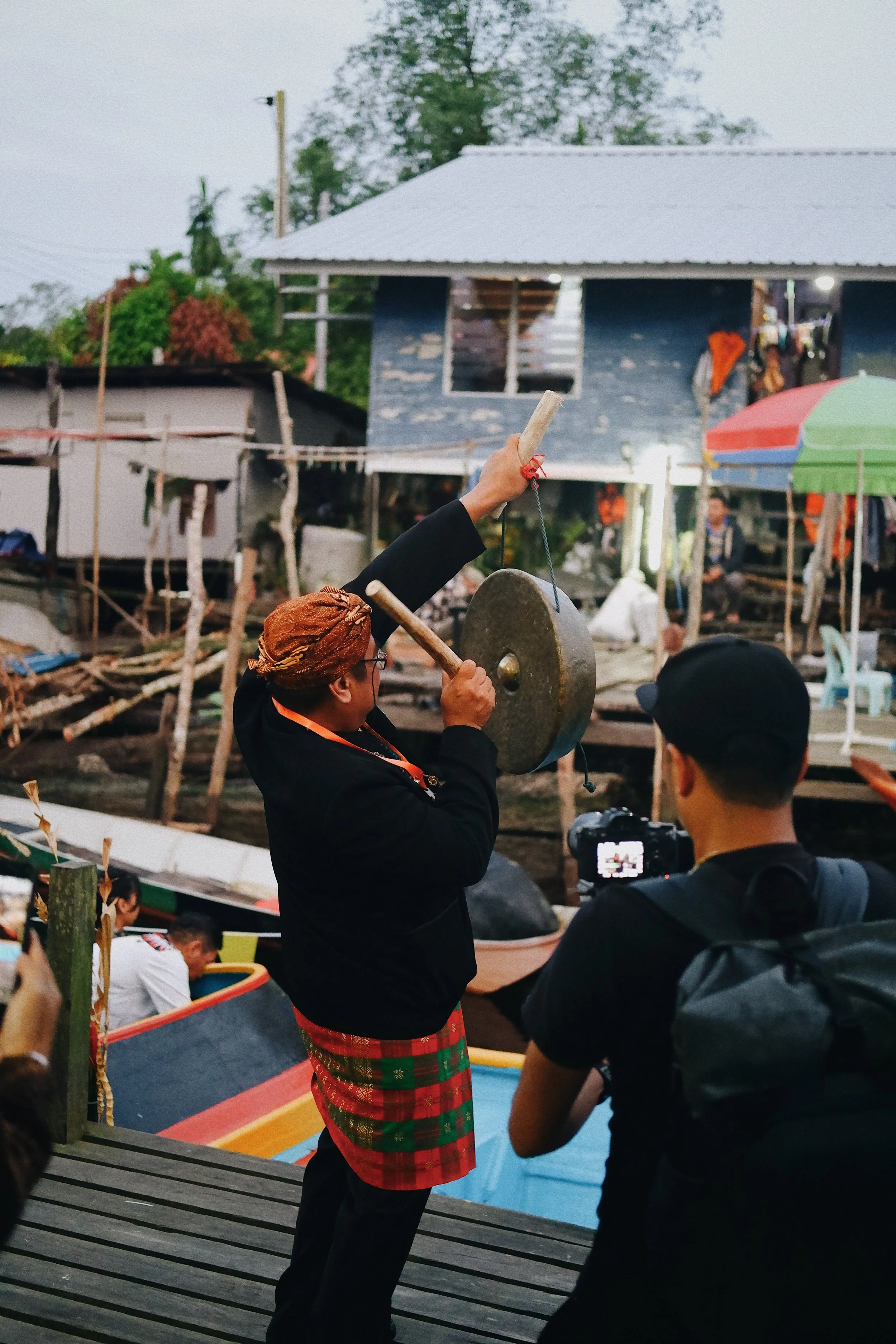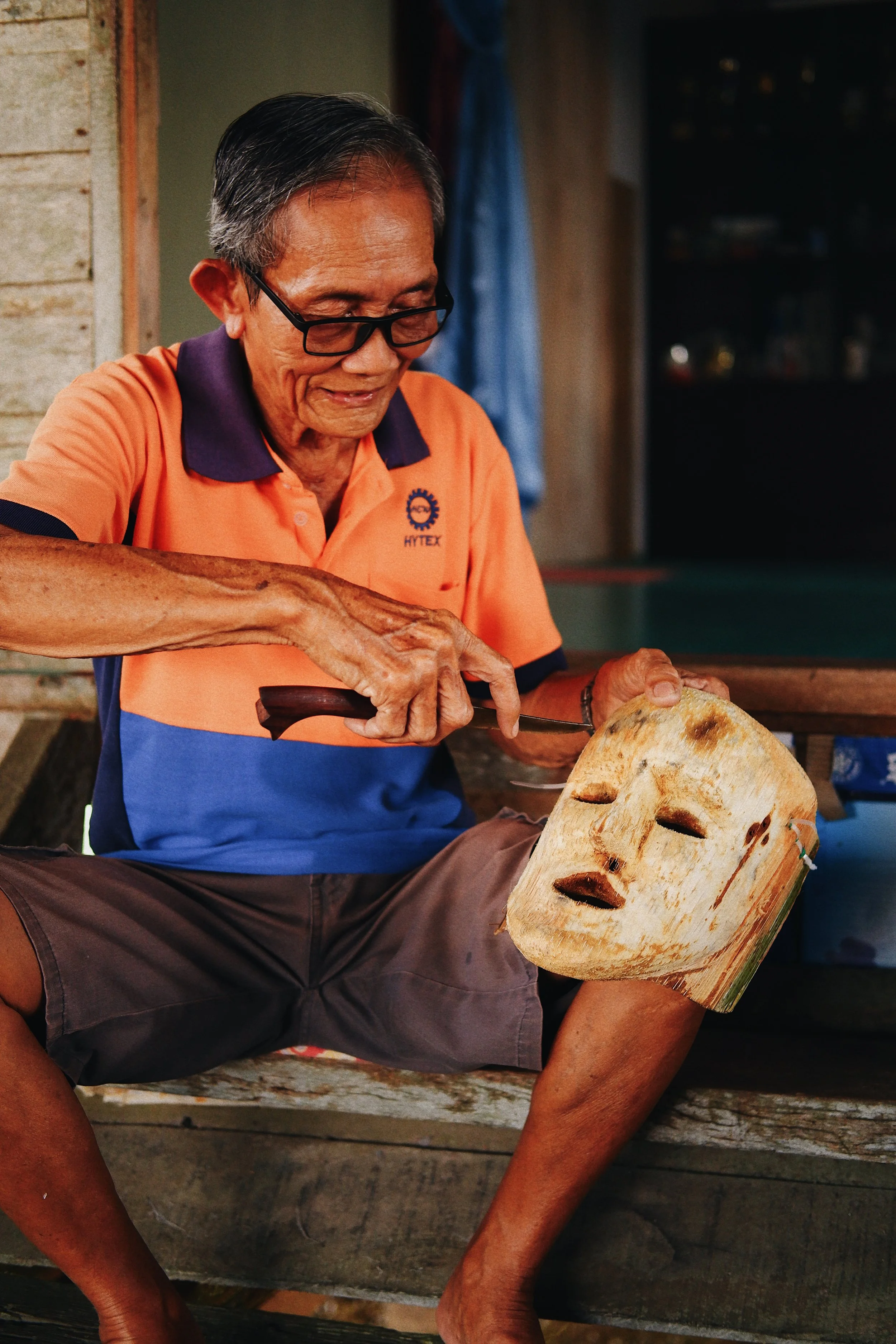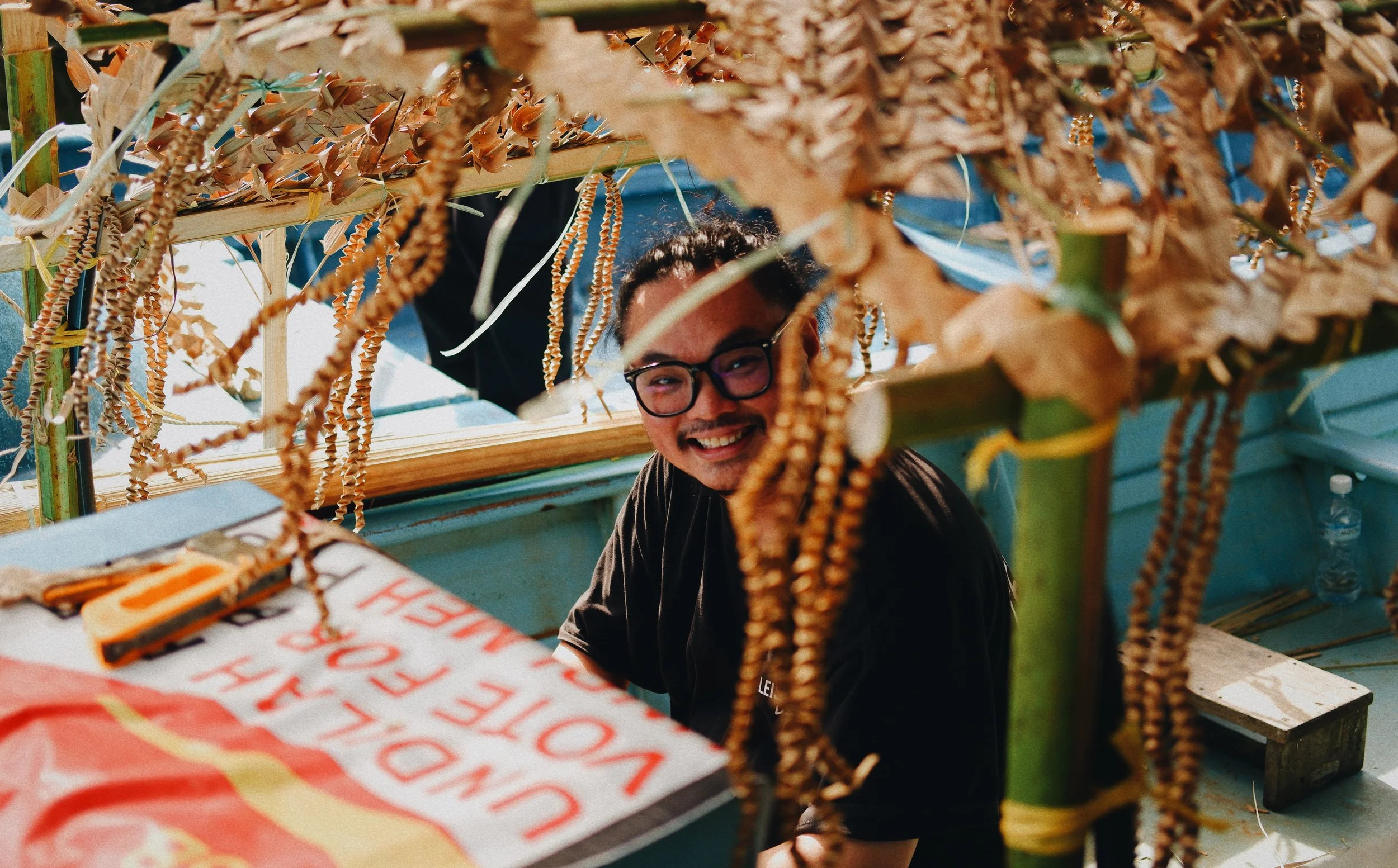How did we end up in Mukah?
Johnny playing the traditional Melanau drum during the Kaul ceremony. (Kampung Tellian, Mukah 2025)
This is one of those moments where you stop mid-experience and think, How the heck did we end up here? That was us in Mukah, feet soaked in boat water, filming and helping to decorate a ceremonial boat for Pesta Kaul.
We were in the coastal town of Mukah for the final phase of our Pathways initiative program. At the same time, we took the chance to observe Pesta Kaul - a festival celebrated by the Melanau who live along the coastal areas of Mukah, Sarawak, every year in April.
Pesta Kaul marks the beginning of the Melanau calendar and the end of the Monsoon season. “Kaul”, which means coming together in the Melanau language, is a ritual to seek for blessing and protection from the guardian spirits of the sea, land and forest, also known as the Ipok, ensuring a safe return along with a bountiful harvest for the community.
However, Kaul is more than just rituals, but also a reflection of the preservation of Melanau culture and community togetherness.
The Melanau community with their Terendak, or sunhats. (Tapak Kaul, Mukah 2025)
Our first welcome came from our good friend Johnny Anthony and his family. There were snacks ready on the table for us, with hot tea and warm smiles. Within the next hour of filming and taking pictures, we found ourselves, not as outsiders but as willing hands, decorating and preparing for the Kaul ceremony the next day.
While an uncle was busy arranging his fishing net, the aunties were filling the boat with fronds from the Rumbia plant, ready to be folded into ornaments.
Rows and rows of fishing nets are being arranged on the boat. (Kg Tellian, Mukah 2025)
“Darlings” they called us.
“Darling, minum air!”
(Drink some water, darling!)
“Darling, kalau rasa nak jatuh, buat macam Titanic!”
(If you feel like falling off the boat, quickly do a Titanic pose to balance yourself!).
The day was filled with laughter and conversations. 80% from a full decorated boat, brass gongs and drums were brought on. Johnny started playing a beat and the rest joined in. It grounded our souls, and everything around just fades away. It is like your heart beats in sync with the land and the sky. The sound isn't just heard - it's felt, it’s remembered.
And then came sunset - wooden bridge silhouettes stretched across the river, people strolling slowly, trees swaying in the breeze. It was a serene and breathtaking scene.
Serene sunset by the river. (Kg Tellian, Mukah 2025)
Then came Kaul morning. Just after sunrise, the Bapak Kaul (Father of the Kaul) raised the seraheng - a symbolic offering to the guardian spirits - and struck the gong. We boarded the decorated boat with Johnny, joining around 30 other boats, and slowly drifted to the river mouth. Villagers stood at their doors waving to us - children, parents, grandparents, while the sound of gongs and drums filled the air.
Shining Terendak hats as we shared food (Tapak Kaul, Mukah 2025)
Once we reached the beach, the Bapak Kaul chanted traditional mantras. Offerings were made to the guardian spirits of the land, sea, river and forest - called the Ipoks, represented by a male and a female mask - made from the Rumbia trunks. There were dances, a display of silat, rhythmic gongs, and rows of colourful Terendak sunhats shining under the sun. It felt like time came to a halt.
And then came the picnic - it was a feast of gratitude. Everyone brought food to be shared together. There were dried durians, jackfruits, shrimps, fishes, fermented rice. Beverly had a buttery, smoked sago worm, and to her surprise it was “actually not bad”! At the end of the day, what food remained was left behind, offered to the Ipoks who have guarded and provided them all their lives.
On the return trip, the tide had dropped too low for the boat’s engine. So we floated, guided by our boatman, pushing on the river bed with a long pole. It was quiet. No music, no small talk. Just the hush of the river carrying us home. The water was still and dark, mirroring everything above. Trees. Sky. Houses. For the first time since arriving, we felt fully present. Johnny casually narrated the world around us: how the long huge Belian logs on the water are hollowed to filter sago, how hot it is inside the sago-making hut, how the Rumbia trunks are harvested and floated neatly in line.
Time slowed down. And in that stillness, 2 thoughts hit me.
One, what made Kaul special wasn’t just the rituals. It was how the community showed up - not for a performance, but for each other. It was togetherness.
And two, how the heck did we end up here?
Special Thanks
Johnny Anthony and the Community of Kampung Tellian, Mukah

